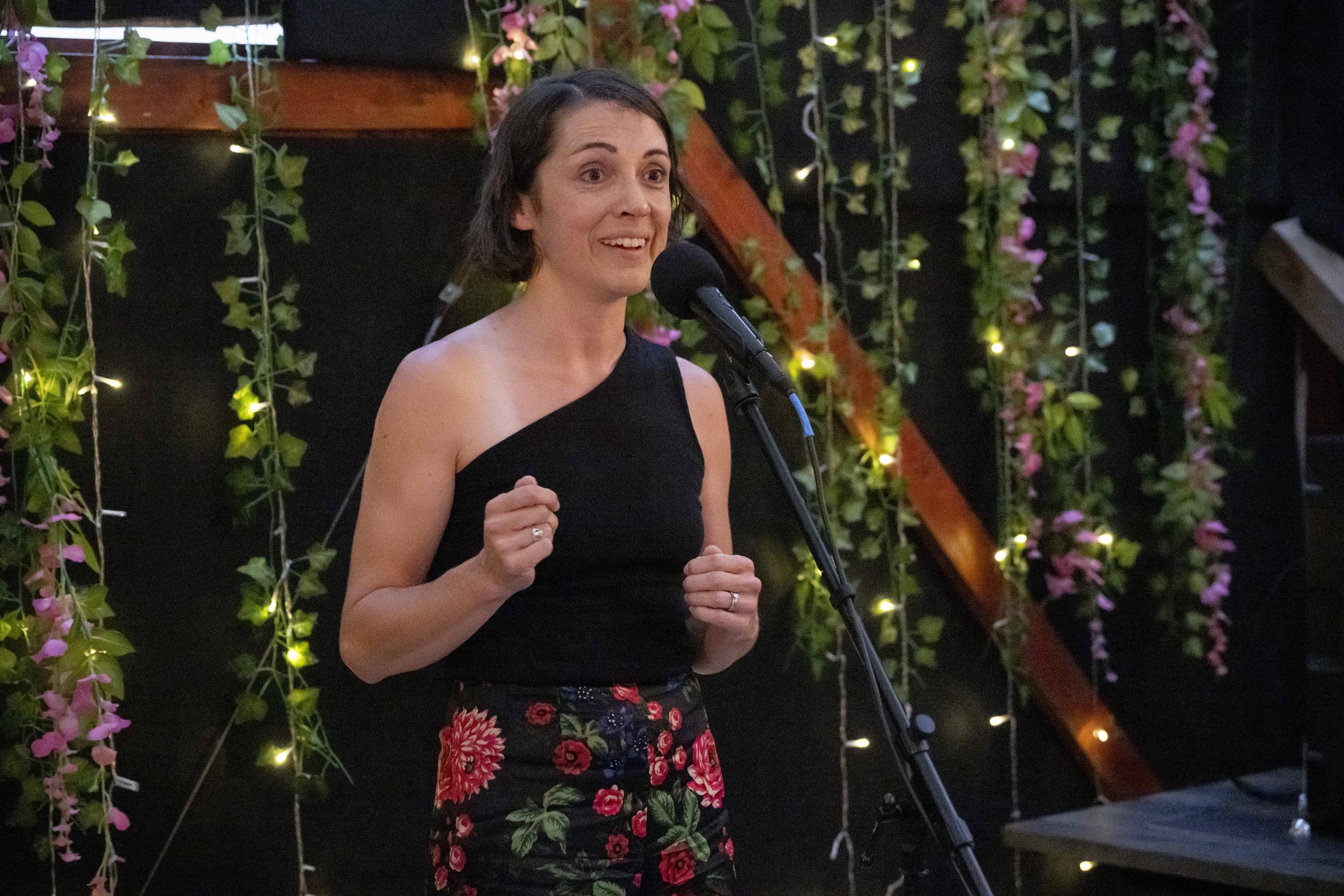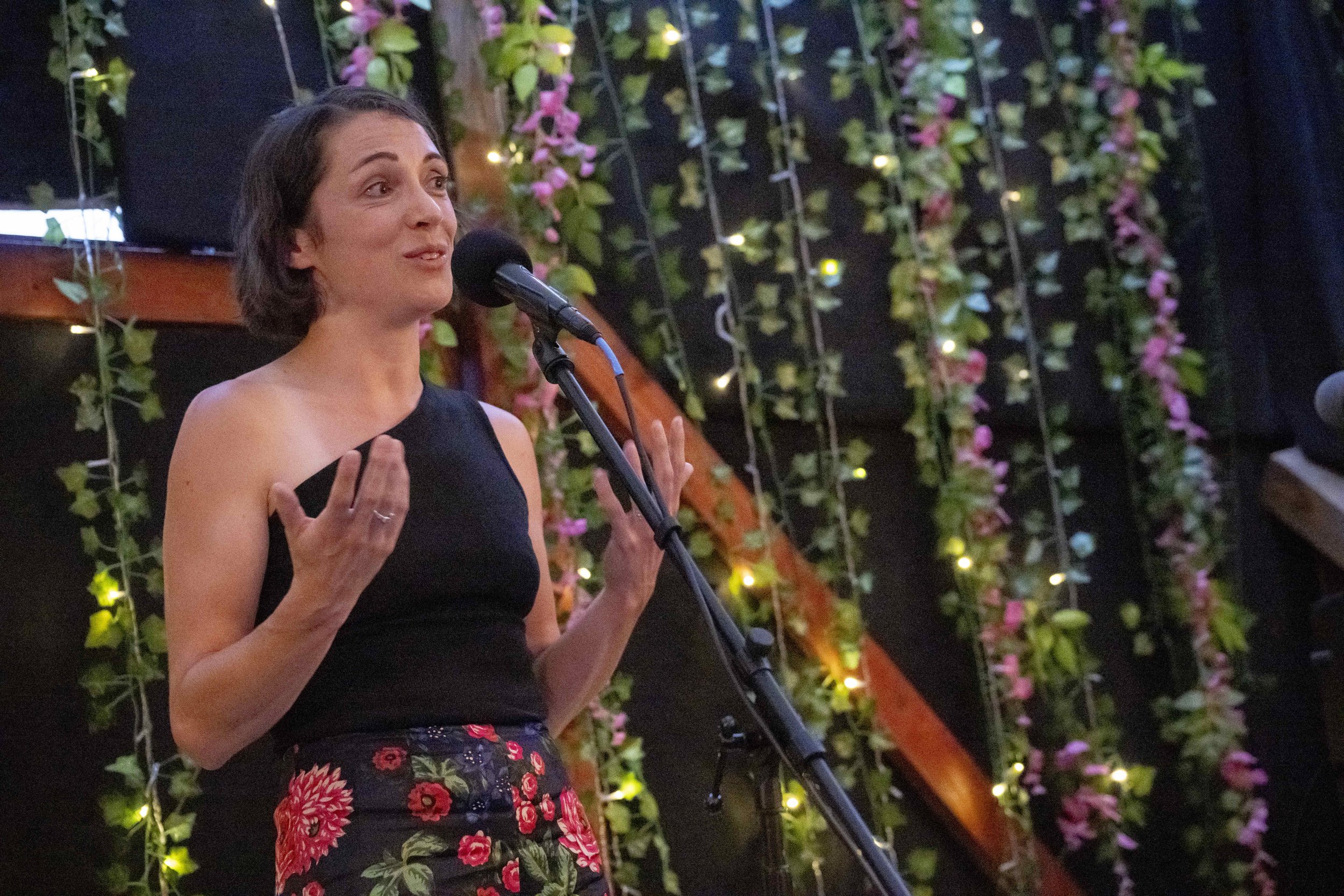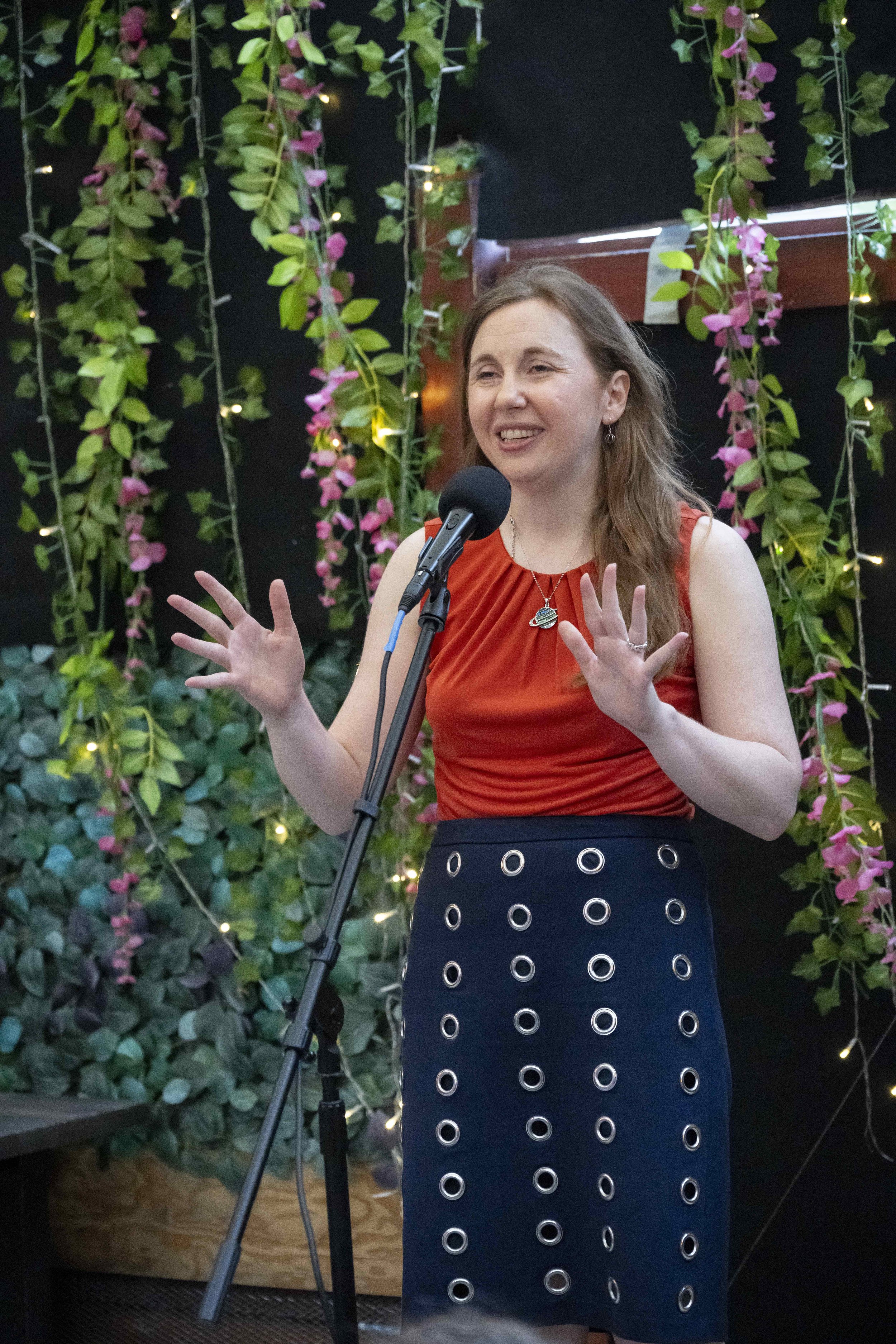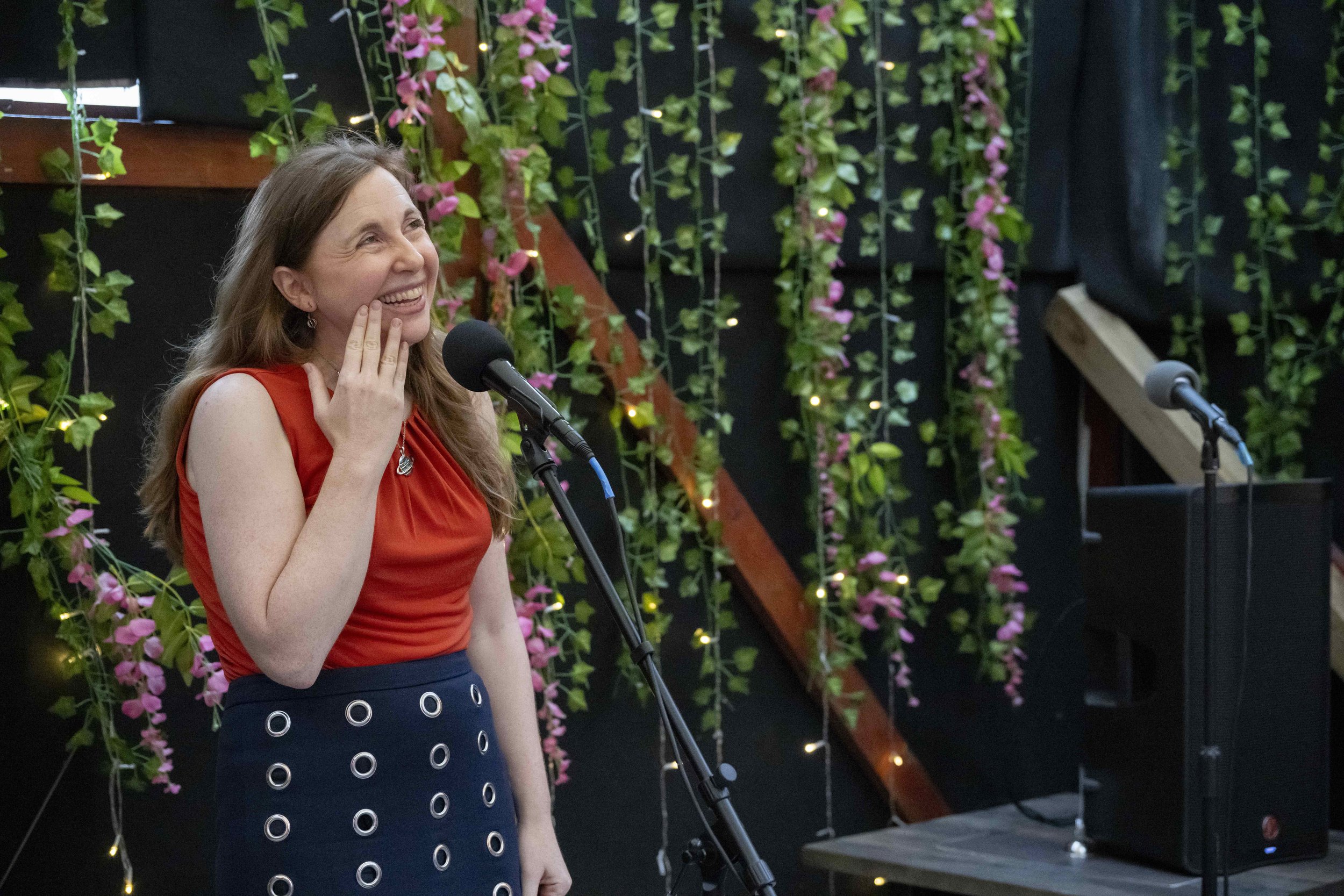While many people believe science and politics should be kept separate, politics is deeply ingrained in science. Be it through funding agendas, cultural lobbies or personal bias – politics can shape the science in many ways. In this week’s episode, both of our storytellers share tales about when politics and science meet.
Part 1: Scientist Gretchen Goldman struggles to protect the data and integrity of science under the new Trump administration.
Dr. Gretchen Goldman is the Climate Change Research and Technology Director at the US Department of Transportation. Previously, Dr. Goldman served at the White House Office of Science and Technology Policy as the Assistant Director for Environmental Science, Engineering, Policy, and Justice, where she led Federal efforts on scientific integrity, Indigenous Knowledge, climate and equity, air quality, and environmental justice. Dr. Goldman spent a decade as the Research Director for the Center for Science and Democracy at the Union of Concerned Scientists, where she led research and policy efforts on climate, environmental, and science policy decision-making. She has testified before Congress, sat on the board of 500 Women Scientists, and chaired the Air and Climate Public Advisory Committee for the Metropolitan Washington Council of Governments. In 2022, Dr. Goldman made the Georgia Tech alumni 40 Under 40 List and was named in Glamour Magazine’s Women of the Year in 2020. Dr. Goldman holds a PhD and MS in environmental engineering from the Georgia Institute of Technology and a BS in atmospheric science from Cornell University.
Part 2: Journalist Liz Landau feels the wrath of the internet when she covers a study about women and their voting preferences.
Elizabeth "Liz" Landau is an award-winning journalist and science communicator. She has contributed articles to the New York Times, Washington Post, WIRED, Smithsonian, Scientific American, Quanta, and other publications. In her work with NASA, she produces and edits podcasts, videos, and website stories about space. Liz holds a bachelor’s degree in anthropology from Princeton University (magna cum laude) and a master’s in journalism from Columbia University. In her spare time, Liz enjoys songwriting and playing keyboard. Currently, she lives in Washington, D.C. Her favorite number is pi.
Episode Transcript
Part 1
“Where would science be if we changed data?” My 11th grade teacher asked me. I was standing in her office with some classmates and I didn't answer the question. I just stood there feeling small.
My classmates and I had just been caught cheating on a chemistry lab. The right answer on the lab ended in a six. But when we got home and we looked at our printouts, our results ended in a five. So rather than take the time to redo a lab, we decided that we would use careful pencil marks and turn our fives into sixes and turn it in.
And we did, but our teacher saw through this and called us into her office. For the record, I want to note that it was definitely not my homework that gave away our game because that six was flawless.
Our teacher explained what a big deal it was to change data in science. I probably should have been more embarrassed, but part of me was just annoyed. I never really liked science class in high school. It all just seems so detached from the real world. I felt like what was the purpose of calibrating to 0.06? What would that teach me about how to understand the world better?
But soon my attitude would change. I learned that I actually liked science when it was applied to something that I could see, that was more tangible in the real world.
Gretchen Goldman shares her story at Smitty’s Bar in Washington, D.C. in July 2023. Photo by Lisa Helfert.
I landed in a PhD program in environmental engineering. My research focused on air quality and health effects. It had this really satisfying connection to the real world. The research that I did as a graduate student fed directly into a federal policy process that set air pollution standards for the entire country. It felt really satisfying and impactful to do that work. So much so that I decided to go into science policy because of that work.
So, after I graduated with a PhD, I got that chance. I was walking into an interview to be a scientific integrity analyst at the Union of Concerned Scientists.
And you might ask, what's a scientific integrity analyst? Well, I can guarantee you, I did not know when I walked into that interview, but I felt like I knew a thing or two about science and policy from my air quality work.
So, I walk in and the interview starts. “Thank you for your interest in the position. First question, how do you think that science is doing in Washington?”
My brain scrambled. The multitude of disciplines encompassed by the term science. How is it doing in a geographic location? Should I talk about my geospatial air quality models? Should I talk about that thing from the local news yesterday? What does this question even mean?
I fumbled something about the need to improve science in federal decision making and I somehow got the job. They took a chance on me. So, despite my misdeeds in 11th grade chemistry, I now had one job and that one job was to protect the integrity of data and science.
This work largely involved tracking the use and misuse of science in federal policy processes and holding accountable decision makers when science was sidelined. It went along at a steady rate and I really enjoyed the work for many years. Then the Trump administration happened. Suddenly, my role was thrust into the spotlight. What was once this nerdy niche topic of federal scientific integrity was suddenly a frequent topic on headline news.
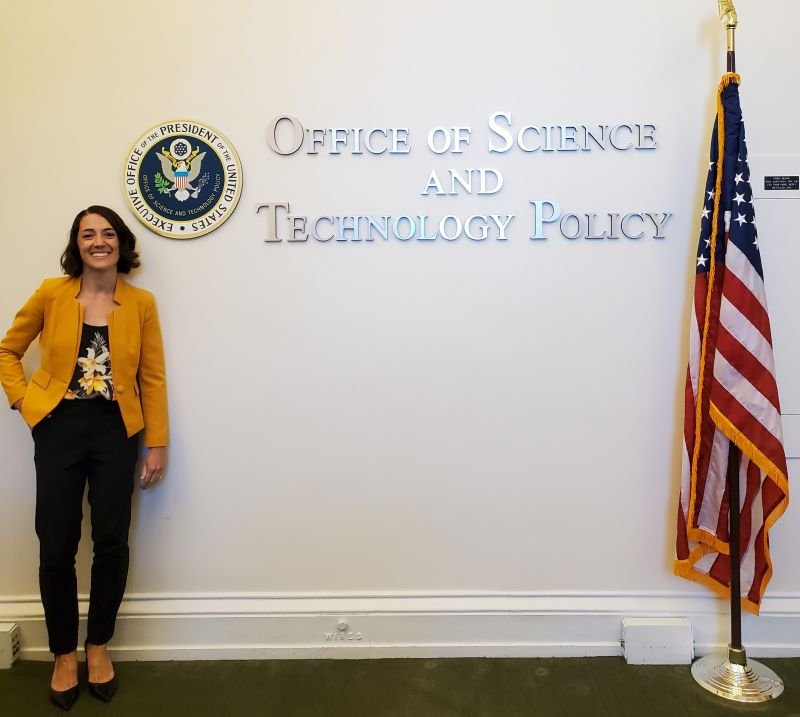
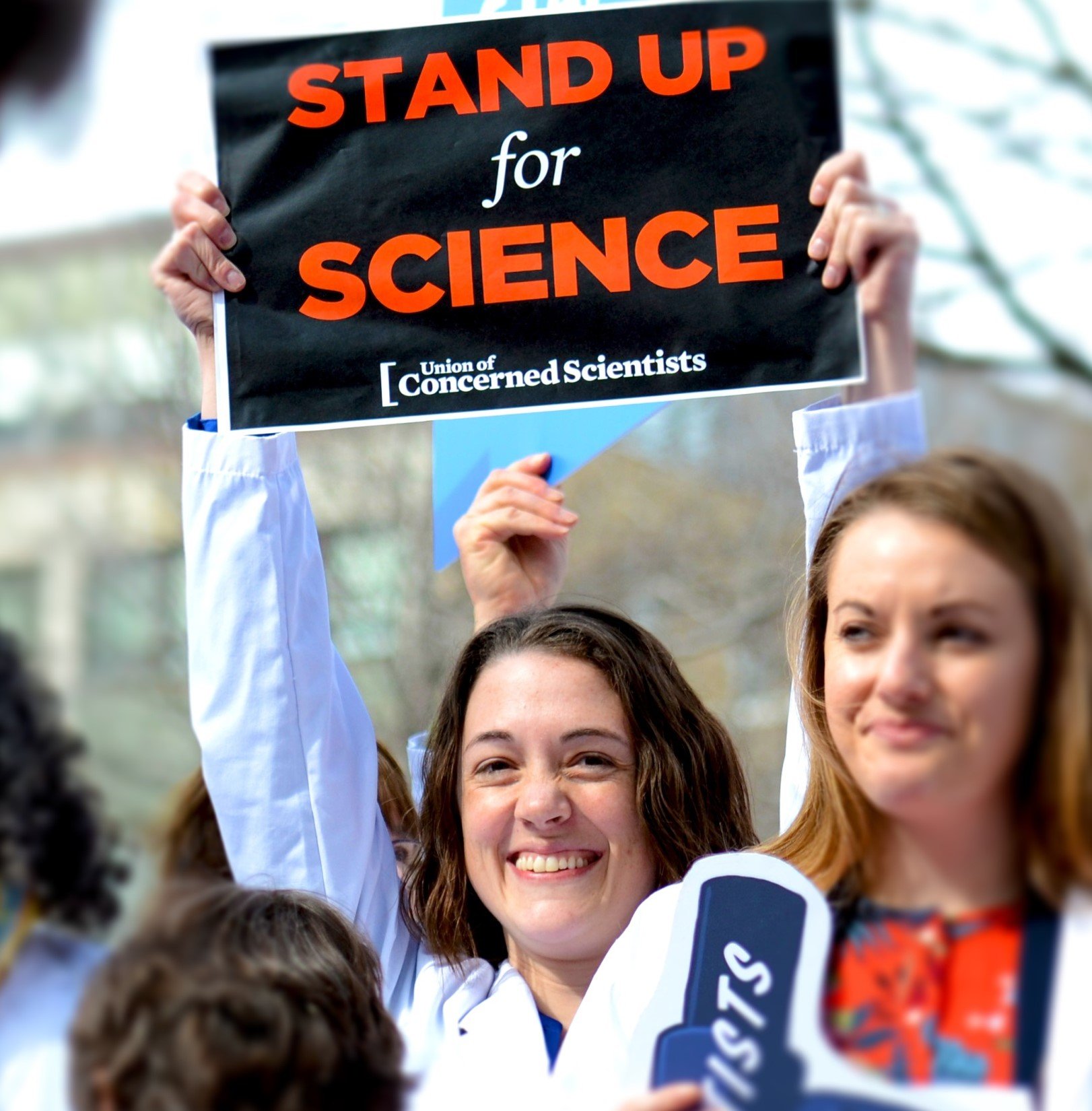
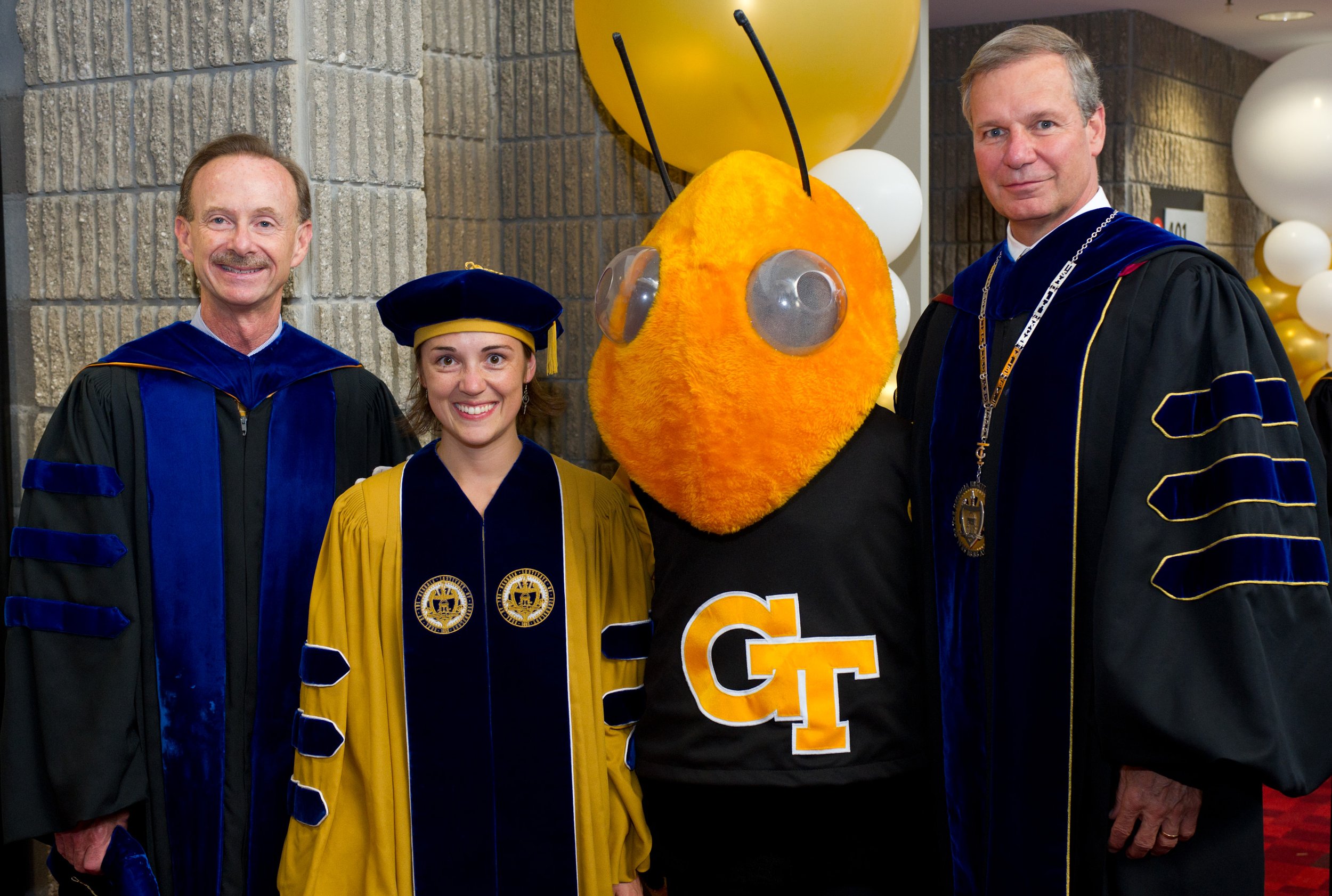
I learned a lot. I learned that I can apparently say very well to a reporter on air with a straight face that, in fact, you cannot reroute a hurricane path with a Sharpie and that in no circumstances should you drink bleach to try to rid yourself of COVID 19.
So, science was getting sidelined day and night, the left and right and it took up most of my time. I remember one chaotic day, I had finished my bike commute home and saw some missed calls from a colleague.
I called him back. “What's up,” I said.
“The administration just killed the panel,” he said, and my jaw dropped.
The panel was a group of scientists that was slated to inform and provide science advice for federal air pollution regulations, so the public health protections against particulate matter, which is a pollutant that causes tens of thousands of early deaths in the US every year. And the administration had just cut scientists out of the process entirely.
I found myself getting angry. This was that beautiful science policy process that I learned about and fed into in graduate school, the one that had made me choose to go into science policy in the first place. And the administration had just taken a wrecking ball to it.
Gretchen Goldman shares her story at Smitty’s Bar in Washington, D.C. in July 2023. Photo by Lisa Helfert.
I thought about my chemistry teacher's words. Where would science be if we changed data? What happens to a country when we ignore scientists on matters of health and safety? The stakes were now so much bigger than my chemistry homework.
“What should we do,” my colleague asked.
I knew we had to act fast. There were only a few people who were poised to explain in real time what this meant and that it would harm people. But I was already home from work. My kids were about to be home. I knew that I didn't have time to call 10 reporters or write a whole article about the consequences that this decision would have.
I thought about what people in Washington DC do when they had something to say in 2018. “How about I tweet,” I said.
So I took to Twitter and I wrote, “This is bad.” After that, words just streamed out of me as I tried to convey that this seemingly mundane policy move would actually harm real people across the country and we couldn't let it stand.
I pressed Send on my thread right as my kids were walking up the front step about to come home. Those tweets that I sent in a rage that night were actually pulled into the New York Times story announcing the scientists’ dismissal. I had successfully sounded the alarm.
But I couldn't leave it at that. This issue felt so personal to me. I had to find a way for the scientists’ message to be heard, even if administration officials didn't want to hear it. So I decided I would try to convene them myself.
To my surprise, the scientists said yes. So we held a meeting that was just as if the scientists would have had if the administration hadn't killed that panel. We live streamed the whole event and we took public comments.
You'd think that's a move that was so novel and so defiant of a presidential administration would attract a lot of attention. Someone actually brought popcorn to the meeting. But the reality is that it was just a long, boring science meeting. That's exactly what it should have been. A group of independent scientists discussing the state of the science and how best to protect the public from air pollution. To me, it was beautiful.
After the meeting, we hand delivered the recommendations of the scientists to the administrator officials themselves and it felt really good. They had tried to take science out of the process and we put it right back in.
All told, my team tracked 206 times that the administration sidelined science. That's averaging once a week for four years. No wonder I was exhausted. And that staggering number showed just how clearly that we really needed to improve scientific integrity in this country.
I watched with high hopes when huge monitors flashed the word ‘science’ behind President elect Biden when he did his acceptance speech. On his first week in office, he announced actions to strengthen scientific integrity across the government. By June of that year, I had been called up to the White House to advance this work. So, now, I would have a bigger platform than ever to advance the role of science in policy and make it count in the real world.
So I dove in. I worked with scientific integrity experts from across the government. I worked with people from outside of government and learned from experts about what they thought about how we should address this problem. And I relived all of those scientific integrity violations that I had tracked for the decade previously. And I helped develop ways to better safeguard science in the future.
I'm proud to say that in January of this year, we released a White House framework to improve scientific integrity everywhere. So, now, across the government in ways that never happened before, there are people and policies and processes and infrastructure in place to improve scientific integrity across the entire federal government.
After all of that, I actually went back to my high school chemistry teacher. I told her about my career and the impact that she had on me when she gave me that very first lesson in scientific integrity.
Gretchen Goldman shares her story at Smitty’s Bar in Washington, D.C. in July 2023. Photo by Lisa Helfert.
And you'd think that a teacher that has so many students year after year would never remember a specific incident like that. And you'd be right. She did not. But she did have this to say.
“Gretchen, I've received many communications from students over the years, but none has affected me as much as your note. I've now joined the Union of Concerned Scientists and I look forward to following your career.”
So when I look back on all of this, I am confident that the work I did to help advance scientific integrity will leave a lasting legacy in this country. I'm hopeful for a world where science and scientists can thrive and where science can better serve society. I know that that will matter in the real world.
Thank you.
Part 2
It was October of 2012 right before Halloween. I was working at my dream job. I was a health and science journalist for one of the top news websites in the country. At that point, I had been there for about four and a half years.
Sometimes, I thought about the reasons why I got into journalism. I wanted to tell big, complex stories that really illuminated the human condition that made people think about the world in a different way, discoveries, medical research, the things that were really exciting to me that I thought might be exciting to other people.
But I learned pretty quickly at this news organization that, in order to be successful, you have to split your brain in half. One side of your brain has those more complex stories and narratives that you're researching. You're talking to people, you're going and meeting them in person for these stories. But the other half of my brain I'm going to call feeding the beast.
What I mean by that is that when you work at a news website that has a lot of content for people to keep refreshing the page and read, you have to generate new content. You have to generate a lot of it.
Liz Landau shares her story at Smitty’s Bar in Washington, D.C. in July 2023. Photo by Lisa Helfert.
Of course, I always held the standards of being accurate and telling full stories. But I also felt a lot of pressure to feed this beast not only just new stories several times a week but also page views. Page views were the favorite meal of this beast.
And I had this in mind this one day in October of 2012 when a researcher approached me by email. I had written about some of her studies in the past. She had a study in which she had surveyed over 200 women on a lot of different topics. She asked them a lot of questions about themselves and their beliefs. And she had found this very interesting link between women who were single and who said that they were in their most fertile part of their monthly cycle and their political views. She found that those women were more inclined towards the liberal Democratic Party in politics.
Whereas married women, when they were asked about their political preferences and where they were on their cycles, married women who were in their more fertile period, they were more inclined towards the conservative Republican presidential candidate in politics and ideas.
When I really thought about it, it was kind of funny, right? Like, it's kind of a weird conclusion to make. It also didn't seem to be backed by a lot of good methodology. Because when I really looked at the study, the women had just been asked about these things. There was no biological testing of where they were on their monthly cycle or anything like that. And a lot of different variables had been analyzed and correlated, so it definitely was not proving that where a woman is on her cycle has anything to do with her political leanings.
But what I also saw was the word ‘women’, the word ‘voting’, the word ‘hormones’. This was gold for that beast that loves page views.
Now, of course, I wanted to tell an accurate story, even though I was turning it around pretty quickly. I called up some noted scientists. I sent them this study that was not published yet but was accepted in a peer reviewed journal. And they outlined some of the concerns that I just mentioned.
I have to tell you that I kind of had fun writing this blog post. It wasn't even featured as a main article. It was on our medical blog. I even said something to the effect of, “Please read on with caution. Scientists have skepticism.” Something along those lines.
I sent it to my editor. She read it. We had a conversation about the headline and a couple of other things. We pressed Publish, and I went to lunch. Wendy's spicy chicken sandwich. Page views.
When I got back to my desk, my Twitter was on fire, but not for the reason that I thought it might be. When I started reading what people were saying with the link to my story, my heart started to pound and I started to sweat because it seemed like hundreds of people were saying that I was a bad journalist. That I believed that women's hormones were driving their political preferences. One person even said, “Liz Landau hates women,” and I am a woman.
At first, I was like, “Okay, well, a lot of these people they only read the headline. They didn't even click through.” I thought that maybe it would go away. But as the day went on, these tweets just kept coming. Some of the tabloid media started writing about the scandal brewing on social media about me.
Around 5:00, the editor in chief of our newsroom came over. She said she had an idea about how to calm people down on social media. Because the headline had been something to the effect of, “Do Hormones Make Women Vote in a Certain Way?”
Liz Landau shares her story at Smitty’s Bar in Washington, D.C. in July 2023. Photo by Lisa Helfert.
“Well, if we just put ‘study-colon-do women vote with their hormones in a certain way?’ surely, that would calm people down.”
I wasn't sure if that was true but she was the boss. I did exactly what she said and I left for the day.
I had tickets that night to see a Halloween themed puppet show at the Atlanta Center for Puppetry Arts. These puppets were acting out classic horror stories. “This is the ghost of your career, Liz Landau.” That's what I thought they said.
I was shaking in my seat. Was I still going to have a job the next day? To make matters worse, when I came out of the show, I had a voicemail. The editor in chief had left this voicemail, and she said that, in fact, they were taking down my article, an article that was on a major news website that had gone viral with being taken down.
“This is the ghost of your career.” I couldn't believe it, because I knew that, now, this was real news. By the next day, so many major news outlets had covered the fact that I had written this article that was taken down. Some even reprinted it using the web archive. “This is the story this news outlet doesn't want you to read.”
I was shaking. I almost didn't even show up to work. But I did somehow muster the courage to walk in the next day.
And when the editor in chief brought me into her office, she said, “Look, I'm not being punished and this is all going to be water under the bridge by Monday.”
How could that be true when every single news outlet, when thousands of people on Twitter were all saying how terrible I was? How I had spouted these terrible falsitudes about women and their hormones.
And I had realized in that moment that I had actually never stopped to consider what it would mean for a woman to even see this headline, suggesting that there was even a possibility that women's hormones relate to their political preferences. I had been so focused on feeding that beast that I had no idea that people would interpret it this way.
Liz Landau shares her story at Smitty’s Bar in Washington, D.C. in July 2023. Photo by Lisa Helfert.
Then what was even more astounding to me was that all of these other news media, they were feeding me to their beast. This is just how it happened and I couldn't believe it. Could I really go on? And if I lost my job over this, who would I be? Would I really be able to continue writing if I didn't have this position at this prestigious organization?
I did a lot of reflecting that weekend and I tried to forget about it, but I was still actually a little bit surprised that by Monday, it was true. The world had moved on. There were no more mentions of me on Twitter. There were no more articles about me.
But all of those articles, they came up when you Googled my name, ‘Liz Landau’. As if I had never done anything else as a journalist. As if I had never covered the Mars Rover Curiosity landing or the discovery of the Higgs boson or cancer research or homelessness or HIV AIDS in the South. All of the things that I was most proud of had just disappeared because of this one story that I didn't even think that much about before I published it.
Thinking about this incident, I think I learned a few things. The first one is that when you publish something under your name, whether it's on a social media site or whether it's on a very prestigious news website, the world will hold you accountable for those words. No matter who else had approved them, no matter who made the decision to publish them or unpublish them, it's still going to be on you in the eyes of the world.
As a result of that, I decided that I was going to be more thoughtful about the stories that I proposed, even the shorter ones, to take more seriously this idea that these words were going to be mine always.
Now that it has been many years, I don't work at a news organization anymore, but I still am doing freelance journalism on the side. And it has given me the freedom to choose the articles that I want to write and pitch them because I also have this job as a science communicator. So the fact that I have more control over the stories that I go after, I feel like, maybe, I'm finally free of this beast.
Thank you.

